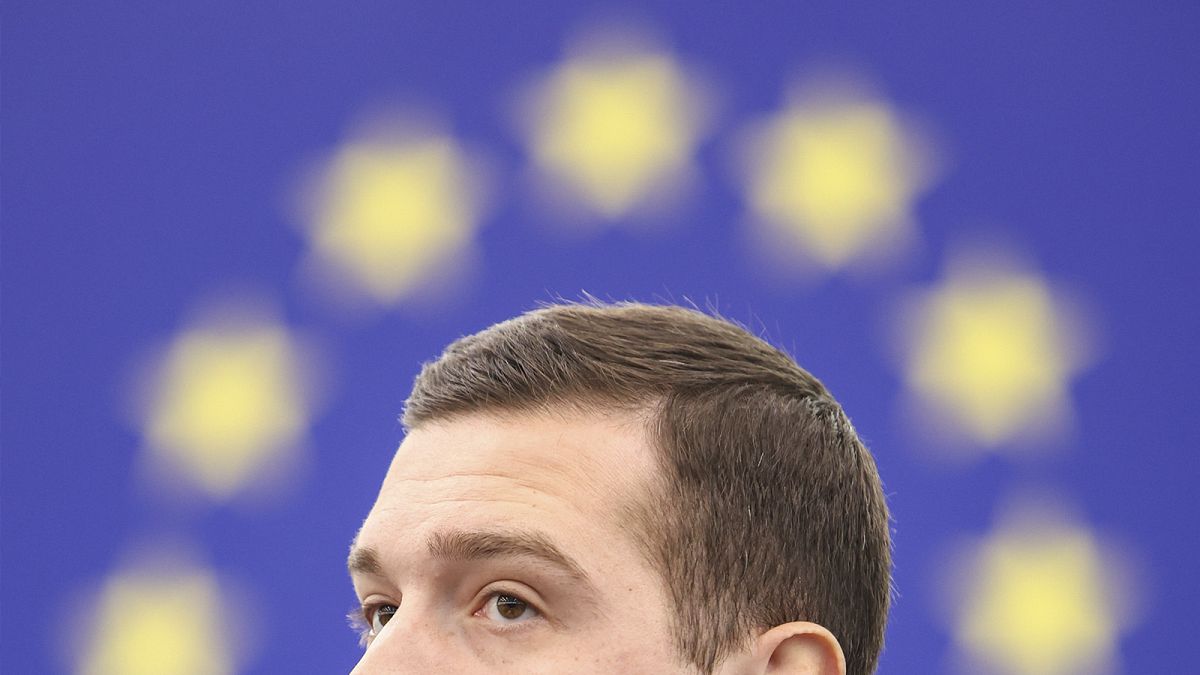From budget cuts to immigration reforms, National Rally and New Popular Front policies could challenge France’s EU commitments.
In the event of a second-round victory, French President Emmanuel Macron’s political opponents could cause tremors in the European Union.
Whilst the far-right is no longer talking about “Frexit” or leaving the eurozone, some of the National Rally (RN) proposals are contrary to European law.
Eric Maurice, an analyst at the European Policy Centre, highlighted several controversial proposals from RN leader Jordan Bardella. Bardella has suggested getting a so-called “rebate” on a part of France’s contribution to the bloc’s budget — to the tune of €2 billion — which Maurice said “would challenge France’s commitment to the EU”.
Bardella’s plan to negotiate reforms to freedom of movement within the Schengen area, reserving it for EU nationals, might also raise eyebrows in Brussels.
Additionally, Bardella has proposed stricter immigration controls, potentially backed by a referendum to prioritise French law over European law. Such a move would “be in flagrant contradiction with European law,” Maurice told Euronews.
The National Rally also proposes a cut in VAT on energy, which conflicts with EU rules since tax decisions require unanimous approval.
Furthermore, the party wants to reverse the pension reform adopted by Macron’s majority. Although this reform does not fall within the EU’s remit, the European Commission recommends it to control the public deficit.
Maurice pointed out the subtleties in the National Rally’s approach: “It’s more perverse than that, in a way. It’s not an exit from the European Union, but it’s a questioning of certain European policies, in any case of France’s participation in European policies or France’s commitments.”
New Popular Front: EU is fine, its policies maybe not
The left-wing parties, united under the banner of the New Popular Front, are not questioning France’s commitment to the European Union. However, tensions could arise over budgetary issues.
The New Popular Front’s economic and social programmes come with significant costs, estimated at €150-200 billion.
This raises concerns about “controlling the deficit and public debt, and the convergence or divergence of the French economy” with its European partners, Maurice explained.
Allowing the deficit and debt to spiral out of control would contradict France’s commitment to reducing these within the Stability and Growth Pact.
Just weeks ago, the European Commission recommended disciplinary action against France and six other countries for surpassing EU budget deficit limits, setting November deadlines for the seven to reduce their deficit.
The New Popular Front also proposes revising the EU’s political priorities, such as ending free trade treaties and reforming the Common Agricultural Policy (CAP).

